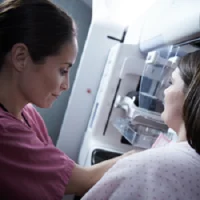New recommendations from the Ovarian Cancer Research Alliance (OCRA) highlight the potential health benefits for women who have their fallopian tubes removed.
Statistically, ovarian cancer claims an estimated 13,000 lives each year. The American College of Obstetricians and Gynaecologists encourage that women with high-risk genetical mutations or a strong history of ovarian cancer consider removing heir fallopian tubes to lower their risk.
Established evidence shows that many cases of aggressive ovarian cancers arise from cells in the fallopian tubes. As the fallopian tubes are not required except for transporting the egg there is little downside to having them extracted, should a woman decide not to have any more children.
Dr. Katharine Esselen, a gynecologic oncologist at Beth Israel Deaconess Medical Center, said “We've known for a long time that many hereditary cases of ovarian cancer likely originate in lesions in the fallopian tubes”.
"Although we group all of these cancers together and call them ovarian cancer, a lot actually start in the fallopian tubes".
Unfortunately, ovarian cancer cannot be detected easily through symptoms or screening. Symptoms tend to be vague and only between 10 to 20% of patients are diagnosed at early stages of ovarian cancer.
It is not clear whether all women should undergo surgery to remove their fallopian tubes, and it is not promised that it can totally eliminate the chance of developing ovarian cancer. However, it is strongly recommended that women discuss their options with their doctor, particularly if they are at higher risk for ovarian cancer.
Removing the fallopian tubes whilst leaving the ovaries in place is helpful. Estrogen produced by the ovaries can help protect against health issues including cardiovascular disease and osteoporosis. Additionally, leaving the ovaries prevents women from abruptly experiencing symptoms of menopause.
However, it still remains uncertain how much this procedure reduces the odds of developing ovarian cancer.
Dr Esselen concludes, “the findings so far have focused on the safety of the surgery itself and women's quality of life”.
“Long-term data in high-risk women takes a great number of years to accumulate. We need this data to know whether removing the fallopian tubes alone is equally effective in preventing ovarian cancer as removing the tubes and ovaries".
Source: Harvard
Image Credit: iStock










